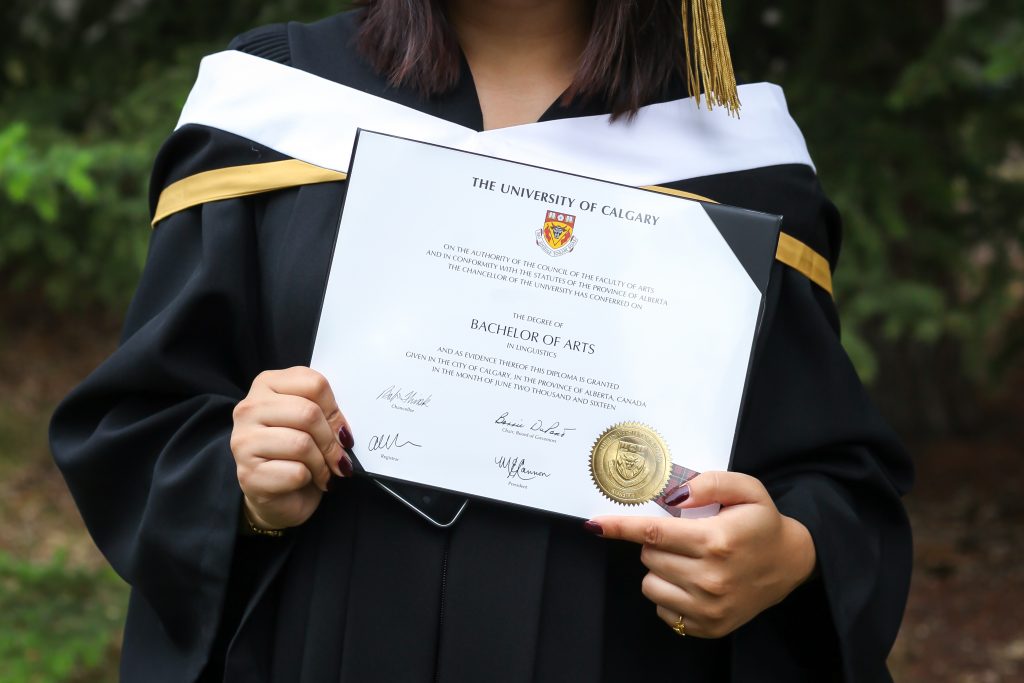
AB2030 solidifies education as a commodity
By Kristy Koehler, February 14 2021—
Alberta 2030: Building Skills for Jobs, is the United Conservative Party’s system-wide review of the province’s post-secondary institutions.
It’s intended to serve as a long-term vision for the future of higher education in Alberta. Quite bluntly, it’s awful. It’s the death knell for education as something intrinsically valuable and solidifies education as a commodity.
Sitting through a public town hall billed as ‘stakeholder engagement,’ I heard all about how Alberta 2030 would “transform the adult learning system to focus on providing the high quality education, skills and training needed to get Albertans back to work, meet current and future labour market demands and drive innovation to make Alberta competitive in a 21st century global economy.”
That’s a lot of words for “the only purpose of education is to make you a wage-earner.”
Meanwhile, the University of Calgary convened a working group about ‘Future-Focused Program Delivery’ which delivered a series of recommendations. Among these was to “expand the number of undergraduate and graduate degree programs that offer modularized and stackable credentials” and to “suspend admissions and terminate programs that no longer are meeting student or labour market demand and are not aligned with the university’s strategic direction.”
On one hand, it’s hard to blame the universities. They’re facing the roll out of performance-based metrics that would tie funding to several factors, chief among them labour market outcomes. But, on the other hand, universities should be pushing back — and very publicly — about the erosion of actual education in favour of the production of labour-market participants.
Higher education is in trouble, and has been for some time. It’s knee-deep in an identity crisis and we’re at a significant crossroads owing to the confusion surrounding the purpose of education in today’s society. Education has been commodified and students have become consumers rather than learners, enrolled at university to get something, rather than gain something.
There are several problems at work here, not the least of which is the fetishization of university degrees by employers. Often, hiring managers post advertisements that don’t bother to state the subject-matter expertise or specialization of their preferred candidate, but simply require ‘a four-year degree.’

Students not only see these postings, but are told that it’s necessary to go to university in order to get a good job. So, they take on debt to obtain a piece of paper they don’t really want. They move through their programs looking for the easiest way out — GPA boosters, classes that don’t require attendance, courses with minimal reading lists and so on.
Yes, there are programs that should be designed to train students for jobs. Doctors, lawyers, nurses, teachers and social workers all attend specialized programs with the hope of getting a job, as do students at trade schools. It seems completely fair and reasonable to expect that students enrolled in a plumbing program will find employment as a plumber upon graduation.
The problem is that, somewhere along the line, we’ve come to treat education like a hybrid between a trade school and a university. Going to university has become about gaining access to the job market, not about learning for the sake of learning. We’re overspecialized and credential-focused. Credentials are the commodity and education, if you’re lucky, is the byproduct.
The Society for Human Resource Management, in a 2019 report, found that more than half of its members who responded to a survey said recent graduates were missing soft skills like critical thinking, problem-solving and communication. They also found that hard skills aren’t keeping pace with technology.
Sifting through resumes recently at a position I held as a hiring manager, only three out of the more than 50 applicants had read the instructions and applied in the specified way. On paper, most of these people were well-educated. In reality, ill-equipped to enter the job market.
I spoke to someone during the last federal election, a double degree holder from the University of Calgary, who asked me if we were supposed to be voting — and I quote — “for a provincial or a federal guy.” Verbatim. On paper, this person was incredibly educated. In reality, woefully unprepared to be a functioning member of society.
The strange line we’re trying to walk between trade school and university isn’t working. A broad-based, liberal education needs to be brought back to the core of the university system.
It’s possible to finish a four-year liberal arts degree without reading anything even close to the amount you’re assigned. I’ve spoken to graduates who can’t tell you the first thing about the Industrial Revolution, can’t label a single African country on a map and are incapable of discerning fact from fiction on the evening news.
They have a vague idea of what “social justice” entails, but they’re full of talking points without the faintest idea of how to act. Of the policies that exist which perpetuate inequities, they don’t know the first thing, but they can sure make a nice-looking statement on Twitter.
You can graduate from a sociology program without ever taking a history course. You can finish a degree in psychology without ever learning how the Canadian political system works.
If you take a history degree you can go an entire four years without ever examining the Greeks and Romans — of course, if you’re interested in the ancient world you can’t take too many courses from the classics field because they won’t “count” toward your degree. You can graduate without knowing a single thing about the politics of the Middle East and you’ll be denied access to political science courses if you’ve already taken too many of them but haven’t declared it as a major.

Even by fourth year, when students are asked to read aloud, they often struggle to pronounce words or to speak with confidence. Presentations are rife with “um… I feel like” instead of authoritative statements.
There is nothing redeeming about turning education into a business. With students as consumers, they’re spending far too much money on a degree they don’t really want, just so they can break into an ever-shrinking job market. And since they’re behaving as consumers rather than learners, there’s an ever-growing demand for ‘campus culture,’ recreation activities and all manner of on-campus services. They’re demanding to be sheltered from ideas they don’t like, instead of learning to confront and debate them. Universities provide those services — and that shelter — to gain the ‘business’ of the students.
This version of education is failing students. It’s failing society. We need to focus on creating a system that aims to produce civic-minded people, capable of debate, discussion and critical thinking.
The University of Calgary is full of wonderful professors with a staggering amount of knowledge to impart on students who desire to learn. Students just need to decide that education is the reason for attending university and employers — and the rest of society — need to recognize its intrinsic value.
It’s not too late to go back, to re-imagine education the way it was intended and to consider not only how we prepare young people for careers, but prepare them for life.
Alberta 2030 is designed to churn out the next generation of wage-earners, eroding what is already in decline — an education designed to create civic-minded individuals able to analyze and find solutions to problems in society. While there are many, many things that need to change within the university system, the first step is to reject government “strategies” like Alberta 2030.
This article is part of our Opinions section and does not necessarily reflect the views of the Gauntlet’s editorial board.
